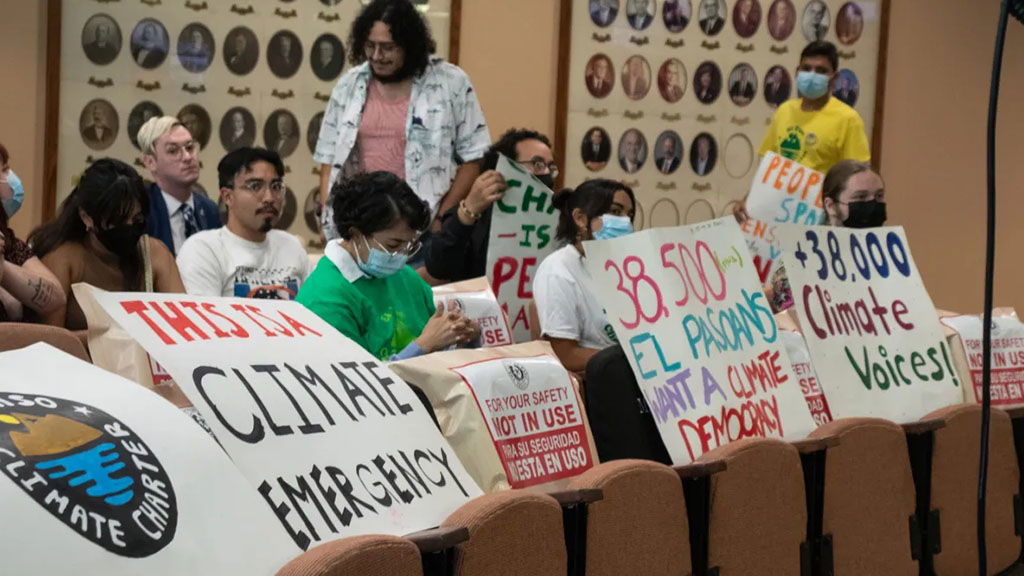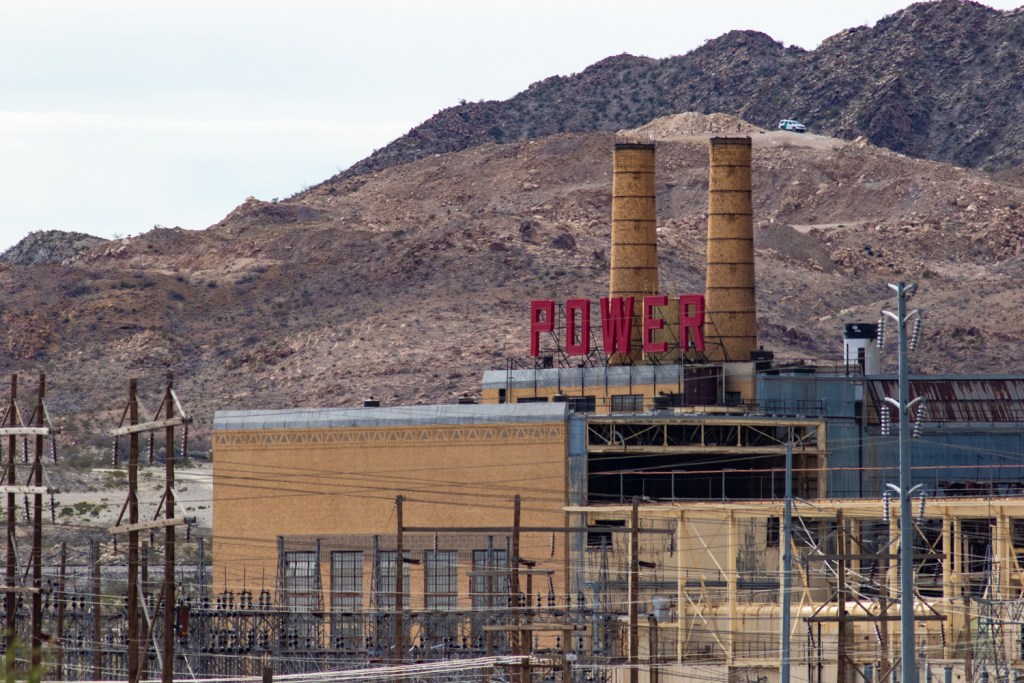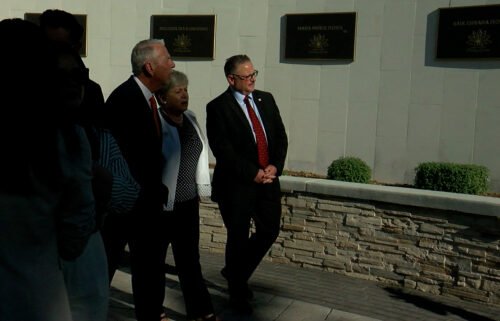El Paso Climate Charter would cost city $150 million to enact, consultant says

EL PASO, Texas (El Paso Matters) -- It will cost the city of El Paso about $150 million to implement the Climate Charter if voters adopt the measure, according to a consultant hired by City Council to estimate the cost to enact the policies designed to address climate change in the borderland.
The city revealed the estimate this week ahead of Tuesday’s City Council meeting where representatives will examine the Climate Charter’s cost. The total cost could reach as much as $155 million over the life of the charter, between now and 2045. The study posted Thursday as an attachment to the agenda is the first time the city has estimated the Climate Charter’s price tag publicly.
On its website, the city estimated that enacting the Climate Charter would cost over $4 million annually, although the costs published on the city website differed slightly from the consultant’s study.
Supporters of the Climate Charter did not immediately respond to a request for comment about the city’s cost estimate. Meanwhile, El Paso Electric and business groups in the city have voiced vehement opposition to the Climate Charter.
The Climate Charter, which is over 2,500 words long, consists of several wide-ranging policies that would become part of the city charter. The policies aim to do things like reduce emissions from El Paso Electric’s power plants, increase solar power generation in the city and create a city climate department to track and report local emissions.
The Climate Charter landed on the ballot for the May 6 city election after environmental organizers gathered around 22,000 verified signatures on a petition last year.
The city hired consultant Yearout Energy, which has offices in Albuquerque, Dallas and Denver, to estimate what it would cost to enact some of the Climate Charter’s policies. The city also hired Austin-based consultant Heather Bailey to study how much it would cost to convert El Paso Electric from an investor-owned utility into a city-owned entity.
Yearout’s study only calculated the potential expenses to enact three of the proposed policies. The consultant concluded that it would cost the city about $192,000 annually to calculate and track emissions in the El Paso area and produce a yearly report.

It would also cost the city about $20,000 to create a plan to power city operations with solar power, but that’s only the cost to craft the policy and does not include the price for materials or the workers who would install the solar panels, according to the Yearout analysis.
The biggest expense to implement the Climate Charter, according to Yearout, comes from the provision that requires the city to be powered by 100% carbon-free electricity by 2045. Many large U.S. cities have goals to be powered by 100% zero-carbon electricity before 2050 to help counter climate change.
The study found that it would cost the city about $500,000 over three years to make some city-owned buildings more energy efficient by adding things like electric heat pumps. An energy efficiency program could allow city buildings to use around 30 percent less electricity in day-to-day operations and save the city over $3 million in annual electric bills.
It would cost the city of El Paso almost $68 million by 2030 to build 36 megawatts of solar generation capacity, which would produce enough electricity to power 80% of the city’s operations, according to Yearout. To ensure city-owned facilities can eventually be powered entirely by carbon-free electricity, the city would also have to build an additional 10 megawatts of solar panels by 2045 at a cost of $25 million.
Yearout only calculated the cost of making city-owned facilities powered entirely by zero-carbon sources, not the whole city. El Paso Electric has its own, separate plan to generate 80% of the electricity that powers El Paso homes and businesses from zero-carbon sources, such as solar, by 2035. The utility plans to eventually generate 100% zero-carbon electricity by 2045.
Another one of the provisions in the Climate Charter calls on the city to “employ all available efforts to convert El Paso Electric to municipal ownership.”
In theory, the city of El Paso could purchase El Paso Electric’s assets within the city limits and create a municipally owned utility that would be accountable to voters and would return its annual profits to the city budget. El Paso Electric posted a profit of $146 million in 2021.

The Climate Charter would only require the city to conduct a non-binding annual study on what it would take to make El Paso Electric a city-owned utility. The city would conduct a feasibility study examining things like the cost to purchase El Paso Electric assets – a price that’s likely in the billions of dollars – and any legal or regulatory barriers that might stand in the way.
The city has worked with Austin-based consultant Heather Bailey since January to estimate the cost of such a study. Bailey previously worked for the city of Boulder, Colo., a decade ago, when that city sought to purchase the local electric power system from investor-owned Xcel Energy and form a municipal utility. Boulder ultimately re-signed its franchise agreement with Xcel.
In the report to city representatives, Bailey recommended breaking the feasibility study into two parts: a broader phase one study that “can help determine whether forming a city owned electric utility is even possible.” She said that would cost the city between $1.2 million and $2.5 million and take 12 to 18 months to complete.
If the phase one study is encouraging, Bailey said, the city could proceed with a more detailed phase two feasibility study that could take up to five years to complete and cost up to $10 million.
“It makes sense to break the study into two phases so that decision makers and the public can get a sense of what is possible before spending millions of dollars on something that may not be legally feasible or cost effective,” Bailey said in the report.
On its webpage, the city of El Paso listed the cost of the feasibility study at $12 million, the top-end of Bailey’s cost estimate.
The Climate Charter includes numerous other policies, but their potential impacts are uncertain.
One policy would ban the sale of city-owned water to fossil fuel industry operations outside of El Paso city limits, which apparently could prevent the city from selling water to two El Paso Electric power plants, which use water for cooling, located just outside the city limits. But it’s not clear how much water EPE purchases from the city for those plants – the Montana Power Station on the far East and the Rio Grande plant in Sunland Park – or whether the utility could source water for them elsewhere.
Other policies in the Climate Charter seek to create “climate jobs”, remove fees for household rooftop solar systems, and create a new city climate department with a volunteer climate commission to oversee its work.
This article first appeared on El Paso Matters and is republished here under a Creative Commons license.![]()

